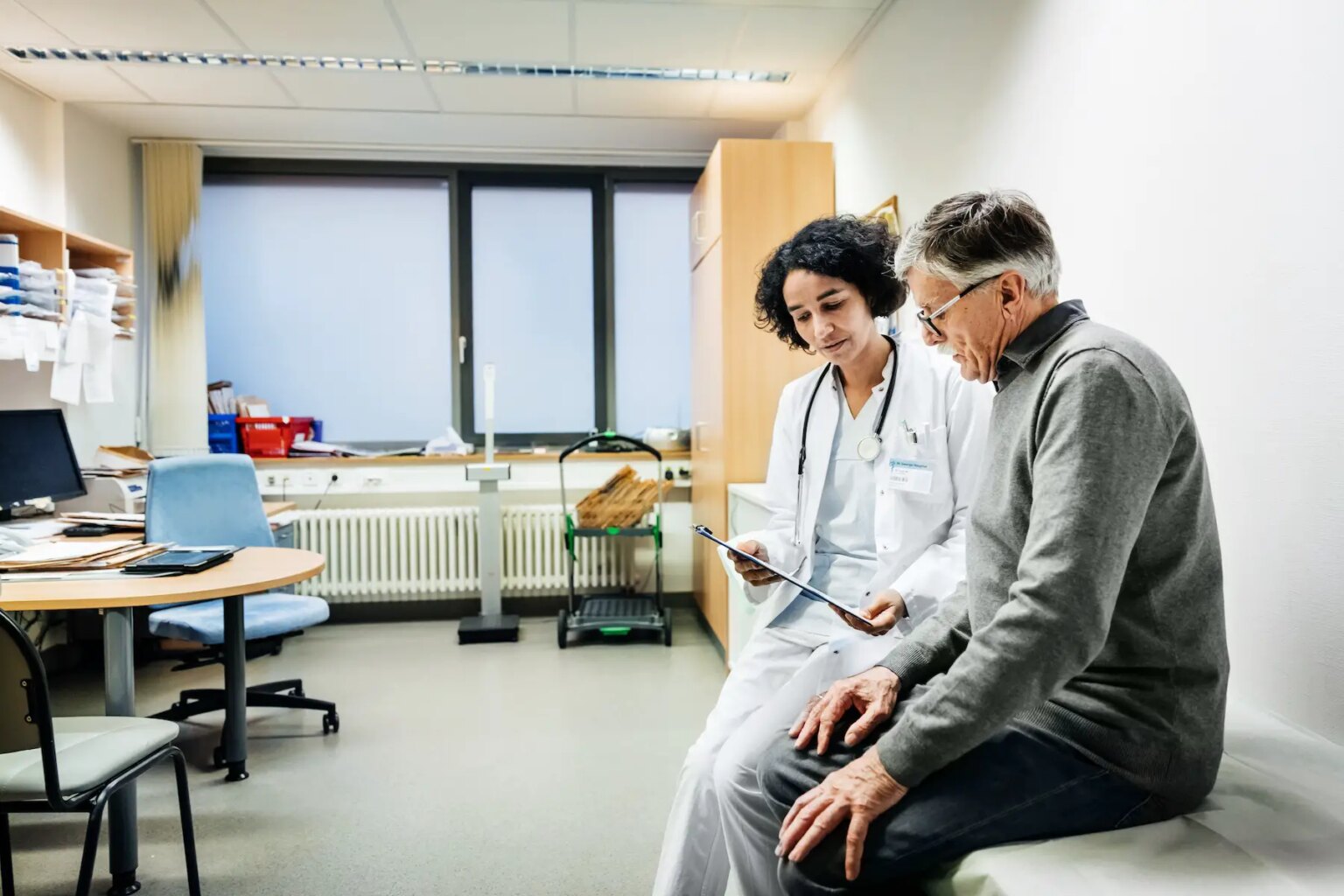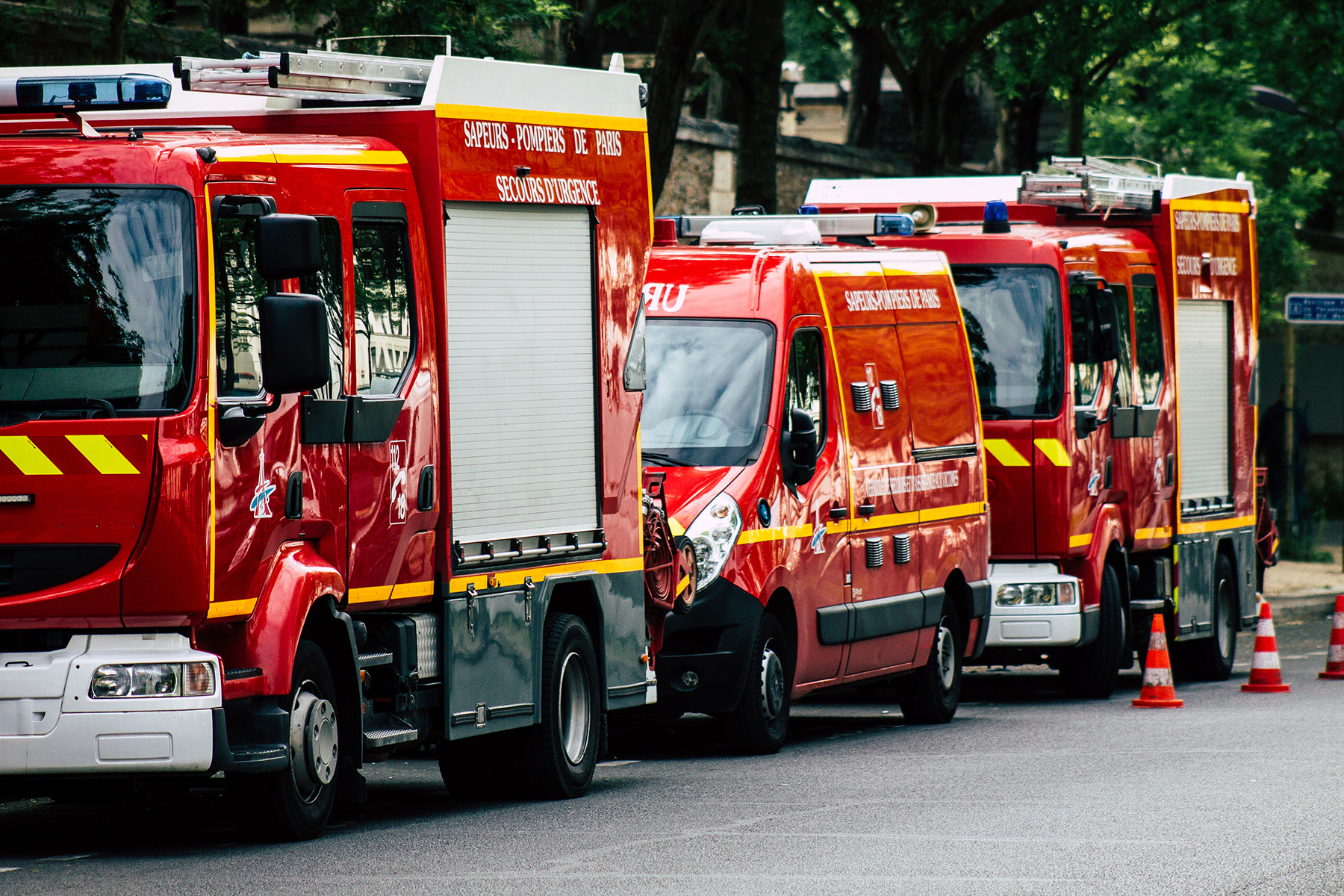France’s healthcare system is accessible and efficient, but if you’re unfamiliar with how things work, it helps to know the steps. This article explains how to find a GP or specialist, make an appointment, understand costs, and know what to bring, whether you’re insured or paying out of pocket.
Continue reading for the following information:
- Overview of doctors in France
- Who can see a doctor in France?
- How to find a doctor near me in France?
- How to see a doctor in France: step-by-step
- How much do doctor visits cost in France?
- Overview of French doctors’ services
- How to complain about a doctor in France
- Practical medical words in French
- Useful resources
Cigna Global
Enjoy peace of mind while living in France with Cigna Global’s long-term international health insurance plans (12+ months). Get tailored coverage, direct billing with many providers, complex case management, and global care on demand, with access to a network of 1.5+ million doctors, specialists, and therapists.
Overview of doctors in France
France has a universal healthcare system that covers almost all residents, including expats. Funded through a combination of public and private health insurance, this ensures that everyone can access a broad range of medical services, including doctor visits (médecin) and emergency care.
According to the National Council of the Order of Physicians (Conseil National de l’Ordre des Médecins – CNOM), France has relatively few doctors compared to the rest of the EU. In 2024, there were 3.6 physicians per 1,000 residents (EU average in 2021: 4.1). That said, the number of doctors can vary a lot depending on the location. For example, Île-de-France and Provence-Alpes-Côte d’Azur had roughly 3.6 doctors per 1,000 patients, while Corsica had only 2.2.
Just under half of these (42.3%) are practicing family doctors, which translates to 1.5 GPs per 1,000 people.
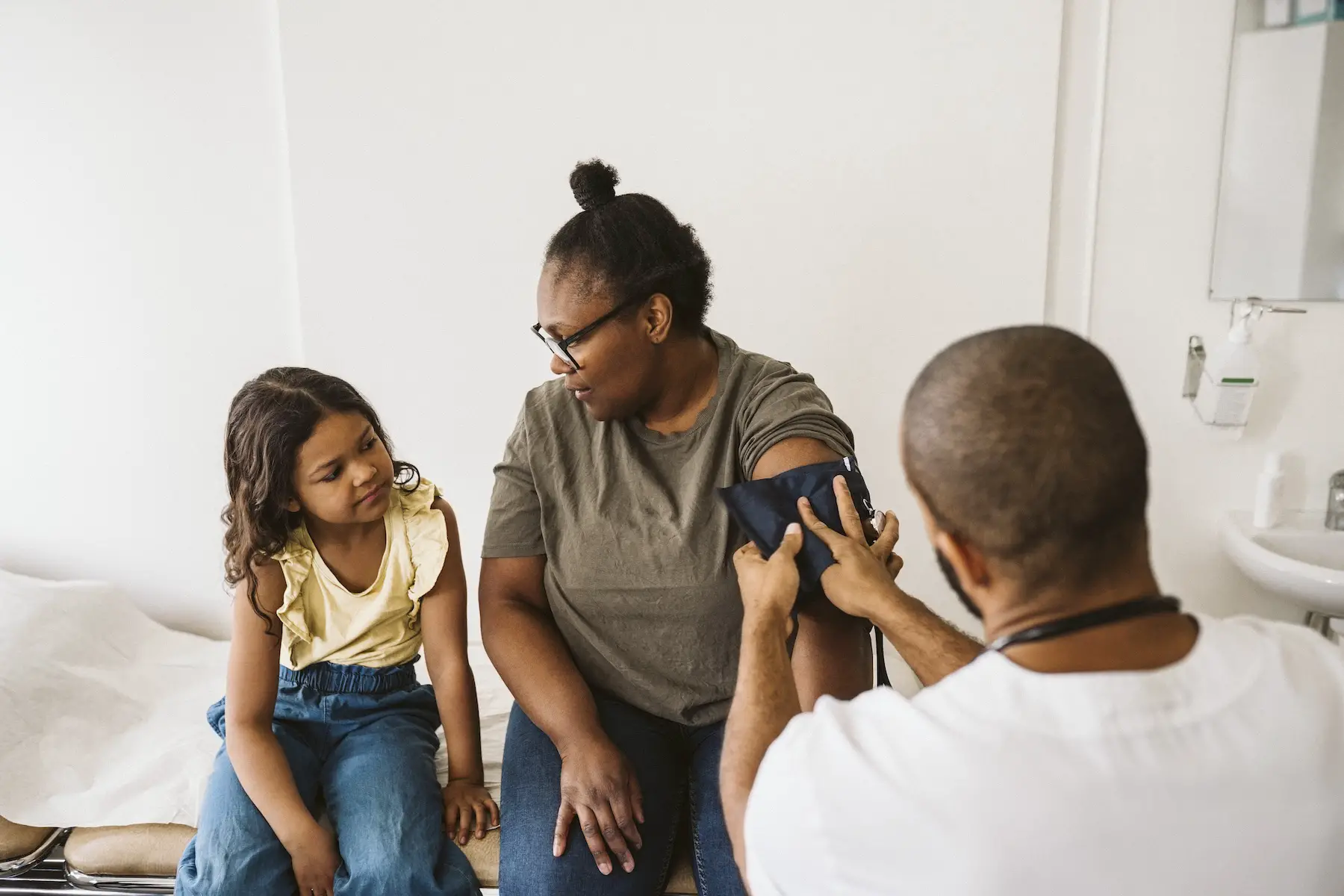
In France, doctors must be registered with the aforementioned CNOM. This association is overseen by the Ministry of Health (Ministère de la Santé).
Family doctors or GPs in France
Family doctors or general practitioners (GPs – médecin traitant) are usually the first point of contact for medical issues. They work either alone or in group practices (cabinet médical), and you are free to choose whichever doctor you prefer. Standard opening hours are from 08:00 to 18:00 or 19:00, Monday to Friday, with two hours in between for lunch. In larger cities, some health clinics may also be open on Saturday morning from 08:00 to 12:00. Most health clinics in France are closed on Sundays and public holidays.
GPs deal with routine medical issues, conduct “light” tests, and coordinate follow-up treatments. They also hold and maintain your medical records and can refer you to other specialists and treatment centers.
Medical specialists in France
If you need more specific care, the next step is usually a medical specialist (spécialiste). From dermatologists to neurologists, France’s network of specialized doctors is wide-ranging and easy to access, even for newcomers.
Medical specialists usually work in hospitals, private clinics, or group practices. Opening hours can vary significantly depending on the doctor. Public doctors offer consultations between 08:00 and 17:00, Monday to Friday, whereas private physicians typically work from 09:00 to 18:00, with two hours in between for lunch.
You typically don’t need a GP referral to see a specialist, though it could help you and them identify your medical situation more easily. Public health insurance also covers 70% more of the costs if you do. That is, with the exception of gynecologists, ophthalmologists, and dentists, these are reimbursed at 70% without a referral.
Who can see a doctor in France?
Everyone can access medical care to some degree or another, including asylum seekers, refugees, and tourists. However, for non-urgent medical help, you have to pay large out-of-pocket costs or have health insurance coverage – either public, private, or both.

Our article on health insurance in France covers the topic (and costs!) in more detail, but basically, there are both public and private doctors. While they both offer the same levels of quality care, the difference is in the insurance coverage and availability.
For example, private doctors and specialists only see privately insured patients. So, if you just rely on public insurance, you cannot get any treatment. And, while public consultations are free with public health insurance, they often have longer waiting times and more rushed exams. Private doctors, on the other hand, cost more but have more flexible appointment scheduling and longer, personalized visits.
How to find a doctor near me in France?
If you are in a life-threatening situation, go to the nearest hospital emergency room (urgences). You can also call 15 for ambulance services or 112, which is the free pan-European number for any type of emergency. People who are deaf or hard-of-hearing can also reach out via text message to 114.
If your situation is less immediate (and more you looking for information), you can find doctors and GPs listed on the government’s healthcare portal, Ameli. And if you’re uncomfortable speaking French, you can also find English-speaking doctors on websites like Doctolib, Maiia, and Mobi Doctor.
For medical issues outside regular opening hours, you can also contact the French Medical Advice Line at 116 117. These will connect you with an on-call GP (médecin de garde) in your area. The service SOS Médecins (36 24 from a French phone) also offers 24/7 access to house calls, in-clinic consultations, and telemedicine appointments.
Alternatively, you can see an online doctor in France. Online telehealth platforms let you speak to a fully-accredited medical professional through video consultations. However, be aware that the healthcare worker may not be able to communicate with you in your native language.
Depending on the platform, these online doctors also offer a number of other services, such as prescription delivery and short waiting times for appointments.
How to see a doctor in France: step-by-step
Step 1: Register with your preferred doctor
French residents are free to choose any doctor they want. You can switch physicians freely, and it’s not necessary to register beforehand. However, it does come with significant financial benefits. When you register with a médecin traitant, public health insurance covers 70% of medical costs; if you don’t register, you typically only get a maximum of 30% reimbursed.
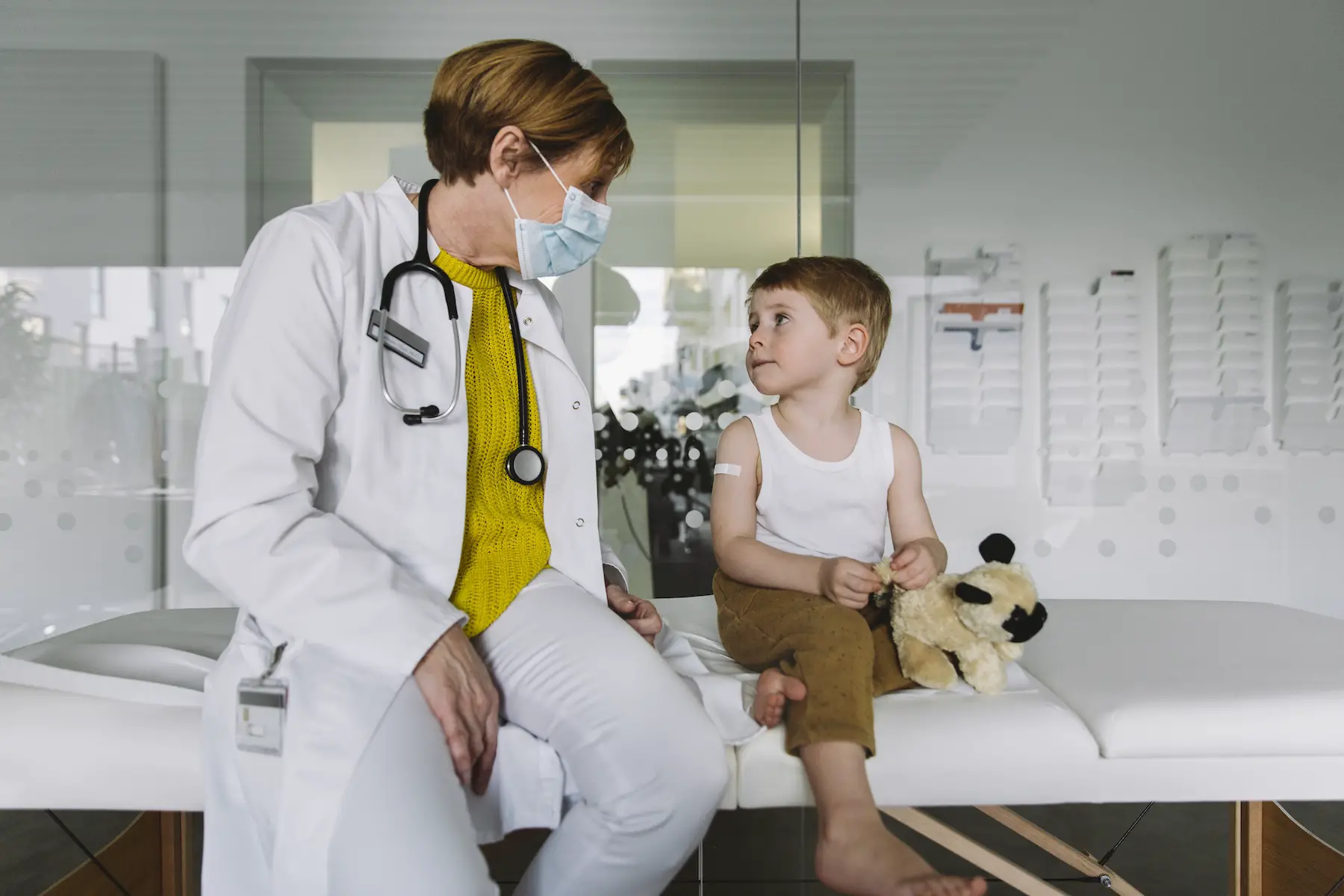
You can register with a doctor by calling or visiting the health clinic in person. It’s worth noting that they don’t have to accept your request; some practices are full and are not taking on new patients.
Depending on where you live, you may have to call around to find someone who can take you on. This usually isn’t a problem in Paris, but in other cities and in more rural areas, there may be a shortage of médecins généralistes (general practitioners). Don’t get discouraged if it takes you a few calls to find a doctor.
Step 2: Book a doctor’s appointment
Although some GPs accept walk-in patients, most require you to schedule an appointment in advance. You can do so with a quick phone call to the individual medical center or using an online service like Doctolib. Specialists don’t do walk-ins unless it’s for urgent medical situations.
Wait times for public physicians can be long compared to those of private ones. In larger cities and more populous areas, where there’s a higher density of doctors, you should be able to get an appointment with a general practitioner within the week. In other regions of France, plan on a two-week wait or more.
Step 3: Visit the health center
When you go to the scheduled appointment, make sure to bring your carte vitale (health insurance card) and ID. This card proves that you’re insured, and it allows your doctor to upload any prescriptions for medications, should you need them. You can also use it to pay your copayment.
If you don’t have health insurance, bring your checkbook or cash. Many doctors in France don’t take credit or debit cards for payment. Their online profiles usually advertise the forms of payment they accept.
It is worth noting that some public doctors don’t speak English very well and may refuse to treat you without an interpreter (as it can double the diagnosis time without one). Private hospitals and practices, on the other hand, almost always have English-speaking medical staff, and you won’t have any issue accessing healthcare.
How much do doctor visits cost in France?
How much it costs to see a doctor in France depends on whether they are a secteur 1, secteur 2, or non-convetionné medical professional.
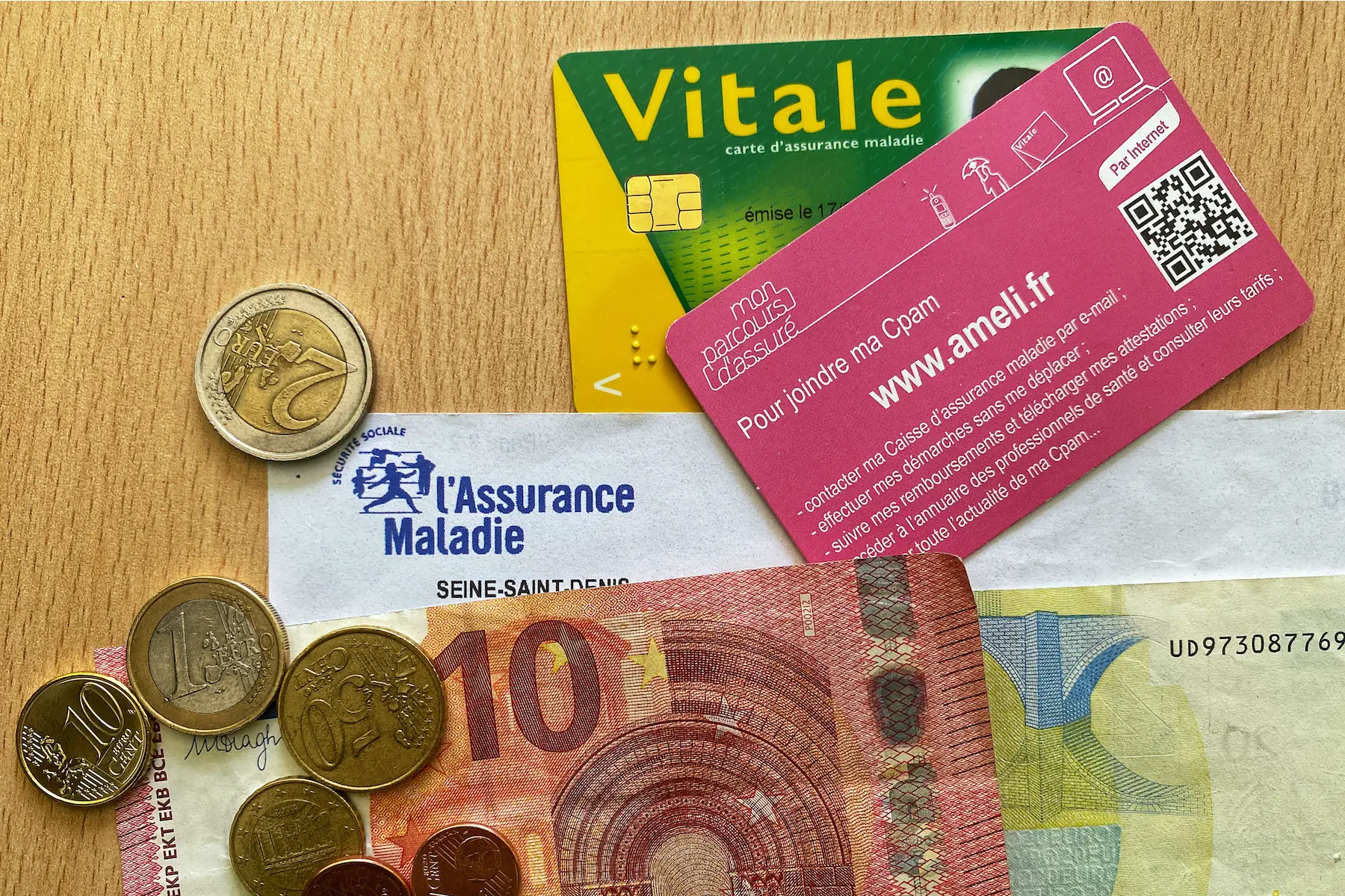
These categories apply to both general practitioners and specialists:
- Secteur 1 doctors charge the fixed rates set by the government. Care from these doctors is reimbursed at 70% if they are your primary care physician or you were referred.
- Secteur 2 doctors can charge higher fees than the government-set rates, but only with reason. Care is reimbursed based on the rate of Secteur 1 doctors, so any difference means a higher out-of-pocket cost to the patient.
- Non-conventionné doctors can charge as much as they like. Care from these doctors is only reimbursed by the state at a rate of €0.61 for general doctors and €1.22 for specialists.
Secteur 1 general practitioners charge €26.50 for a standard consultation (2025). Secteur 1 specialists charge €35 maximum or €55 for psychiatrists and neurologists, and €60 maximum for cardiologists.
For example, if you visit your médecin traitant who is secteur 1, public insurance will reimburse you €16.50 after your appointment, meaning you pay a total of €8.50. Public health also covers 70% of the cost to see a specialist if your primary care physician refers you.
Do I need health insurance in France?
Yes. Our article on health insurance in France explains everything in full detail, but as a quick summary:
- Health insurance is mandatory for all residents.
- Foreign nationals can sign up for public insurance after three months of residency. During this time, you’re responsible for any treatment costs you incur in France. You can either pay these out of pocket or take out private insurance to pay them for you.
- Not all treatments are covered, and most require a copayment. Many French residents take out private (top-up) health insurance from mutualles to cover medical costs not reimbursed by the state.
There are many private health insurers in France, and it’s worth shopping around to find the best deals.

Aside from the home-grown health insurance funds, there are also international insurers who cater specifically to expats. These are ideal if you’re not (yet) eligible for a private policy, travel outside the country a lot, or prefer expat-focused care. Some of the largest international health insurance companies that operate in France include:
Overview of French doctors’ services
Prescriptions and medications
If necessary, the doctor may prescribe you medication, which you can pick up from any pharmacy (pharmacie) in France. A prescription may also include recommendations for over-the-counter medication and items like bandages or nasal sprays, so they can be covered by your insurance. You typically need to pay up to 40% of the costs yourself, depending on the medication.
It’s worth noting that, even if your doctor writes you a prescription for several months of treatment, the pharmacist often only gives you a single month’s supply at a time. They’ll make a note on your record and give you more when you return the next month. Don’t hesitate to ask for more at once, though, if you’re going on vacation or will be out of town.
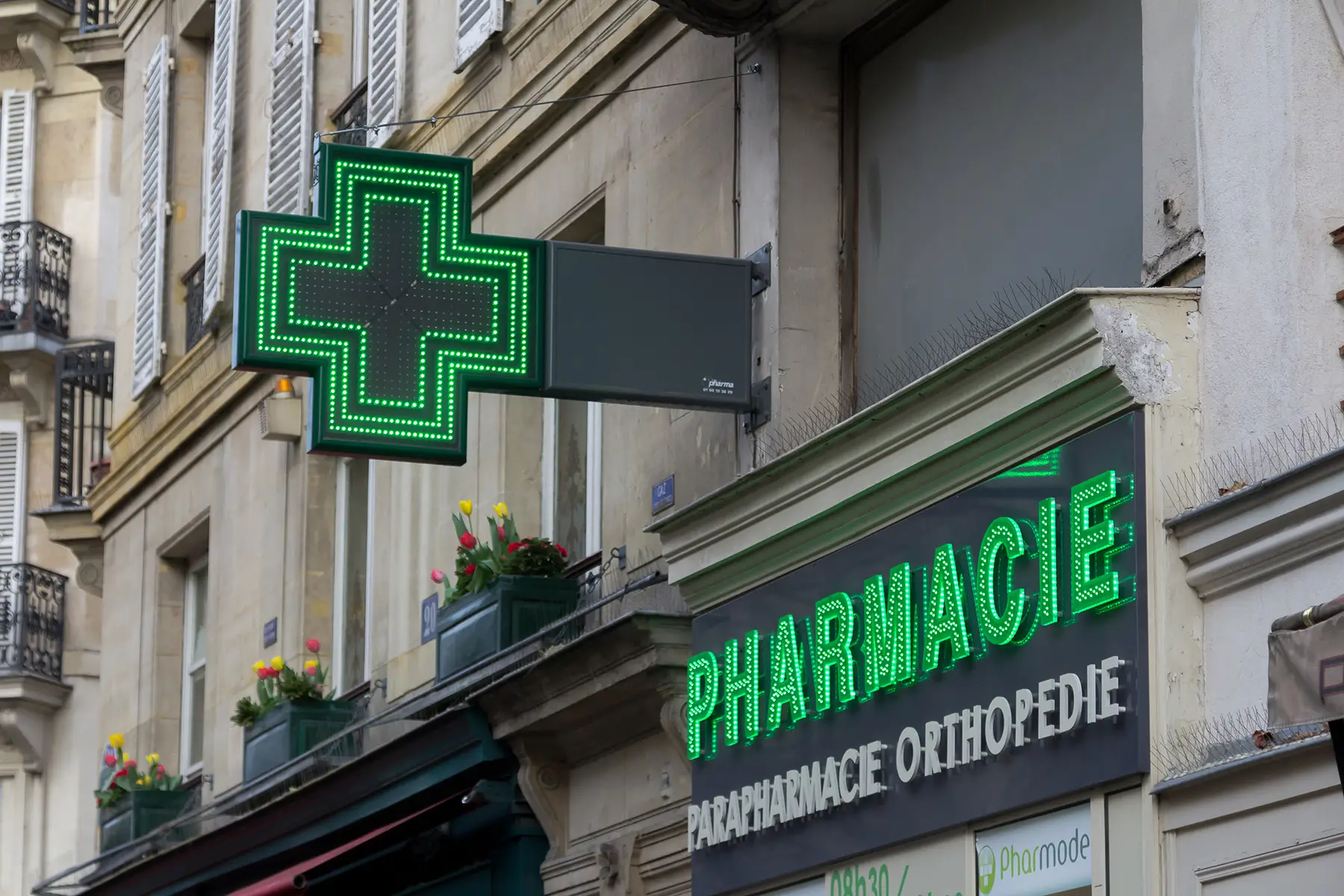
To find your nearest pharmacy, you can use any search engine or check the National Order of Pharmacies website. For one outside of regular hours (pharmacie de garde), you can call the paid service 3237.
Medical tests in France
French doctors may perform fewer medical tests than you’re used to. Unlike some countries, France only does medical testing when they are medically necessary (and not when the patient requests it). For example, it is relatively standard for one-year-olds in the US to have a blood check for anemia. In France, however, pediatricians will not recommend this unless there are significant concerns.
Likewise, general practitioners in France don’t typically perform any tests at their offices. So, if they think medical testing is necessary, they’ll write you a referral. It’s then up to you to find a laboratoire de biologie médicale (medical biology laboratory) or centre d’imagerie médicale (medical imaging center) and schedule an appointment for your tests.
When possible, the testing center will give you your results at the end of your appointment. Otherwise, they’ll call to let you know when you can come to pick them up. Once you have your results, you’ll schedule a consultation de suivi (follow-up appointment) with your doctor.
How to complain about a doctor in France
If you want to file an official complaint about a doctor in France, you can send a certified letter with return receipt requested to the regional department of the CNOM (Conseil départemental de l’ordre des médecins – CDOM). The letter should explain the issues and list the specific articles of the ethics code that were violated.
The CDOM will hold an arbitration meeting within one month of receiving the official complaint. It should be noted that all investigative proceedings are conducted in French.
Practical medical words in French
It is a good idea to have a phrasebook or a translator app on your phone in case you need to explain more complicated health issues. You’ll also want to remember some of these medical words in French:
| English | French |
| general practitioner | médecin traitant |
| doctor’s office | cabinet médical |
| appointment | rendez-vous |
| pain | douleur |
| headache | mal à la tête |
| stomach ache | mal au ventre |
| back pain | mal de dos |
| fever | fièvre |
| cough | toux |
| prescription | ordonnance |
| painkiller | analgésique |
Useful resources
- Center of European and International Social Security Liasons (Cleiss) – a breakdown of the French healthcare system in English
- Health insurance for foreigners in France – automated translation of the French public services site, explaining your rights and terms
- Ameli – French state website with details on healthcare costs, reimbursements, and a directory of doctors
